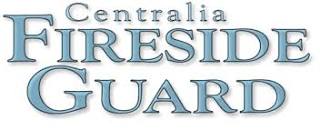Minister Dustin Stanton, Hallsville Church of Christ
Ring, ring! You pick up your phone and guess who it is; another telemarketer wanting you to participate in their survey. Ping! You just got a Facebook notification that you need to fill out more personal information on your account. Ding! Now you just got an email that came in from Bed, Bath, & Beyond telling you that if you sign up for a credit card, you’ll get $25 off your next purchase.
 In years past, when you think back to the top families and businesses in society, we have seen a gradual change in what we might consider the “super” successful (and I use that phrase lightly). In the late 1800’s the Rockefeller’s were successful because they controlled the oil industry. In the early 1900’s, Henry Ford became successful because he controlled the transportation industry. John Deere revolutionized the way we grew food in the mid 1900’s. In the 90’s Bill Gates became successful through the internet.
In years past, when you think back to the top families and businesses in society, we have seen a gradual change in what we might consider the “super” successful (and I use that phrase lightly). In the late 1800’s the Rockefeller’s were successful because they controlled the oil industry. In the early 1900’s, Henry Ford became successful because he controlled the transportation industry. John Deere revolutionized the way we grew food in the mid 1900’s. In the 90’s Bill Gates became successful through the internet.
Through each of these transitions, we have seen “successful” businesses rise up because they monopolize in one specific area be it in food, oil, or whatever. There is a stark difference though in the businesses that were successful in times past versus the successful ones of 2020. In times past, success in the business world came through owning tangible things like automobiles and even the internet, but successful businesses today are built on the intangible element of controlling information. Don’t believe me?
You don’t pay Facebook a dime, but they are one of the largest businesses in the world because they know that you “like” Disney, Chipotle, and Folgers Coffee. Menards will give you a free $50 gift card if you sign up and give them your email, phone number, and physical address meaning that it’s more valuable than that. In the business world, we call this information power or inversely, the weakness of asymmetric information.
I was taught this idea of asymmetric information with a very simple example to follow. Why will you pay over $30,000 for a new car versus $8,000 for a used one? Is it because of the mileage, the body color, or the transmission? No, not really… It’s because of asymmetric information. Truth be told, a new car has just as much likelihood of breaking down as a used one. It has just as much likelihood of being involved in an accident and maybe even a little more likelihood of being stolen. The difference is the amount of information you have in each scenario. When you walk into the new car dealership, you feel like you have all the information and you’re willing to pay the extra $22,000 for that assurance. Now, when you walk into the used car dealership, you feel like the salesman is hiding something from you and is holding back information. You’ve got this little voice in the back of your head and you’re wondering what is he not telling me? You don’t feel as confident in the purchase, so the price is less. Even if you were to buy a new car, the value instantly plummets. Why is this? It’s because anyone else you try and sell this new car to, will feel like they don’t have all the information, and they won’t pay you as much for it. To be clear, there is nothing wrong with buying a new or used vehicle though!
For the complete column, see this week’s edition of the Centralia Fireside Guard.




